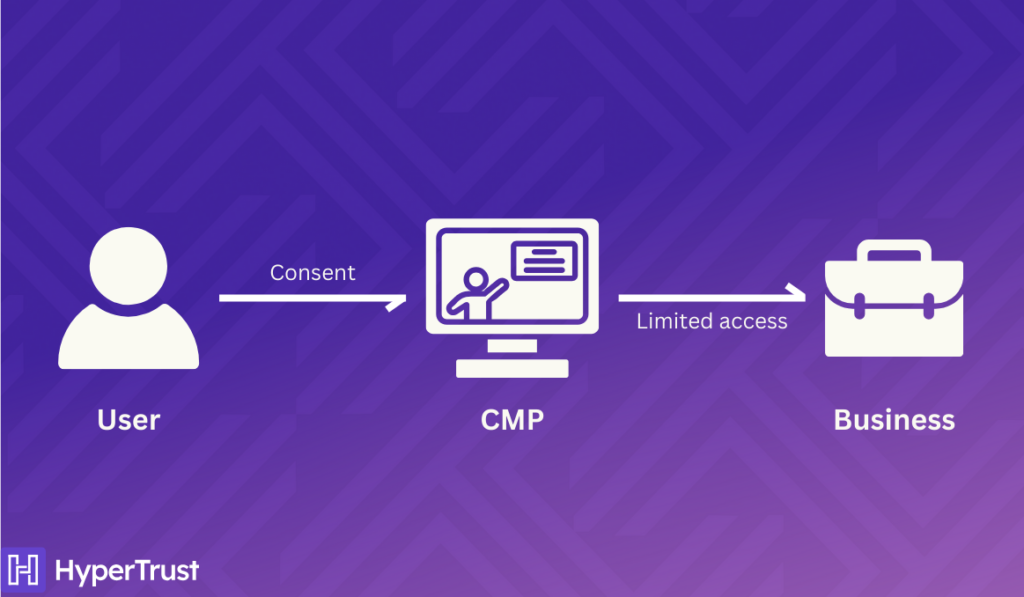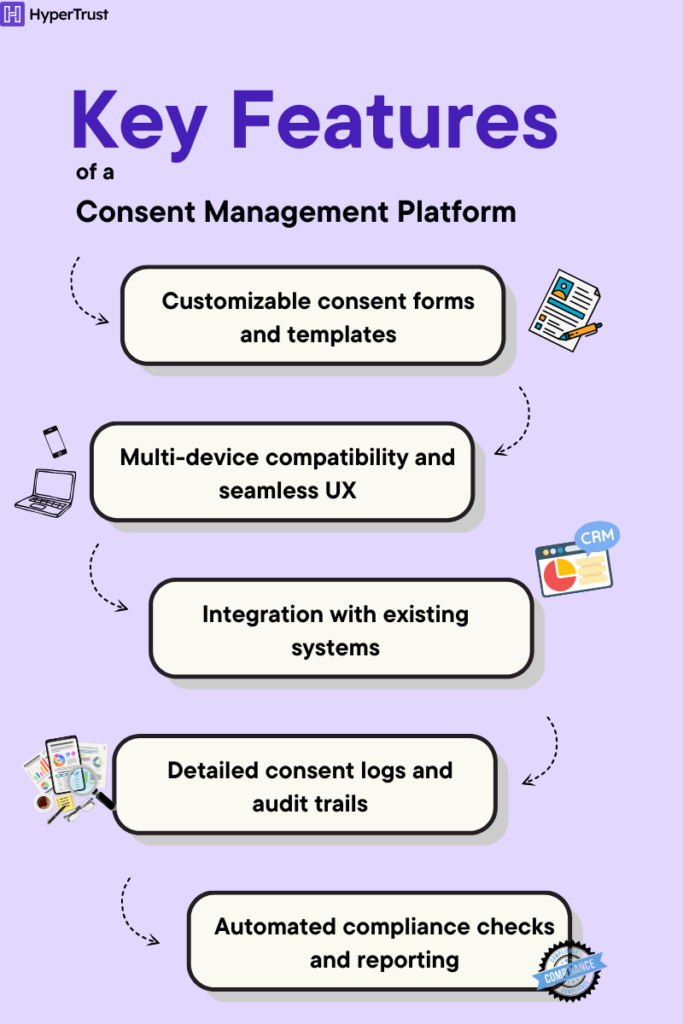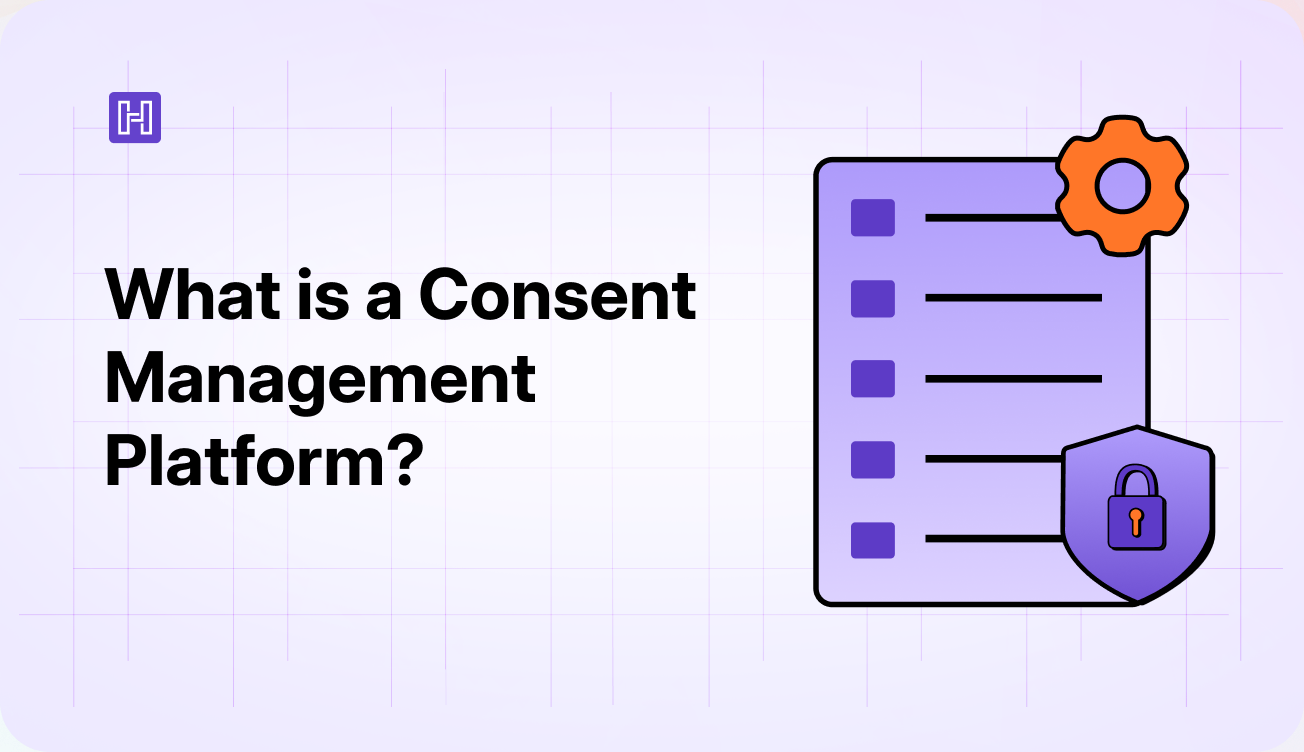Personal data is currency in today’s world. From your age and location to your browsing habits and preferences, businesses are constantly collecting and monetizing consumer data. But here’s the catch: much of this data is harvested and shared without explicit consent.
This lack of transparency has sparked a global movement toward stronger data privacy protections. Enter regulations like the GDPR in Europe, the CCPA in California, and India’s groundbreaking Digital Personal Data Protection Act (DPDPA) 2023. These compliance laws and regulations are designed to give individuals control over their personal information while holding businesses accountable for how they collect, process, and share data.
For instance, the GDPR requires organizations to obtain clear, explicit consent before processing personal data. The CCPA empowers consumers with the right to opt out of data sales through a simple “Do Not Sell My Personal Information” button. And now, India’s DPDPA 2023 takes it a step further by mandating transparent consent mechanisms and granting individuals the right to access, correct, and even delete their data.
The consequences of ignoring these regulations can be severe. Take the infamous Cambridge Analytica scandal, where data from 50 million Facebook users was harvested without consent and used to influence political campaigns. The fallout? A massive public outcry, a $633,000 fine for Facebook, and a stark reminder of how privacy violations can damage both trust and reputation.
So, how can businesses avoid such pitfalls and ensure compliance with these evolving laws? The answer lies in a Consent Management Platform (CMP). A CMP is a powerful tool that helps organizations collect, store, and manage user consent in a way that aligns with global data protection standards. It’s not just about avoiding fines—it’s about building trust with your customers by respecting their privacy.
In this article, we’ll dive deeper into:
- Why consent is the cornerstone of data privacy.
- How regulations like the DPDPA 2023 are reshaping the compliance landscape.
- The role of a CMP in helping your business stay compliant while fostering customer trust.
By the end, you’ll understand why a CMP isn’t just a compliance tool—it’s a competitive advantage in today’s privacy-conscious world.
Understanding Consent Management Platforms
A Consent Management Platform (CMP) is a tool that helps websites and organizations comply with privacy laws like the GDPA, CCPA, and the Digital Personal Data Protection Act (DPDPA) 2023 in India. It allows businesses to collect, manage, and store user consent for processing personal data in a legally compliant way.

Under the DPDPA 2023, organizations must obtain explicit consent from individuals before processing their data. This means that a CMP is not just a tool for managing consent but a critical component for businesses to meet legal obligations and build consumer trust.
CMPs help by displaying consent pop-ups or banners on websites where users can approve or decline data collection. These platforms also record consent decisions and track changes in consent over time, which is essential for audits and compliance.
Beyond gathering consent, CMPs enable businesses to manage user requests, such as data access, correction, or deletion. With India’s new data protection laws, these features are mandatory. Failure to comply can result in heavy fines, making a CMP an indispensable tool for protecting your business and customer privacy.
In fact, the consent management market is rapidly growing. In 2022, it was valued at $458.89 million, and it is projected to increase to $2,021.05 million by 2030, representing a CAGR of 20.4% from 2022 to 2030. This growth highlights the rising importance of data privacy and the need for businesses to invest in CMPs to stay compliant.
For businesses in India, staying compliant with data protection laws is no longer optional. The DPDPA 2023 will hold companies accountable for mishandling data, similar to how GDPR is enforced in Europe. CMPs help simplify how you record and obtain consent, ensuring that organizations easily adhere to these regulations.
When users see that their data is handled transparently and in line with the law, they are more likely to engage with your brand.
Manage consent and protect your business from costly violations today!
Key Features of a Consent Management Platform
Here’s a closer look at the key features that make CMPs invaluable:

Customizable consent forms and templates
CMPs allow businesses to create custom consent forms and templates based on specific data collection needs. With these tools, companies can ask for precise consent and tailor messages according to local laws requiring clear consent procedures.
Studies show that 39% of consumers want to see exactly what data is being collected before giving their consent. Customization helps businesses maintain transparency and build user trust, which is essential for long-term relationships.
Seamless user experience and multi-device compatibility
With mobile web traffic making up 58.21% of global internet usage, businesses must offer smooth consent collection on all devices. The consent process should remain simple and consistent whether users visit via mobile, desktop, or tablet.
CMPs enable this by adapting the consent form layout to any screen size. This provides a hassle-free experience that increases user participation and consent rates.
In addition, CMPs offer easy access to detailed consent logs. These logs document every consent action—when it was granted, what was agreed upon, and any changes made. This transparency not only supports regulatory compliance but also allows users to revoke their consent if desired easily.
With 87% of consumers preferring platforms that let them control or withdraw consent, CMPs meet the growing demand for data autonomy and ensure businesses remain accountable.
Integration with existing systems and data privacy frameworks
A CMP that integrates with other business systems, such as CRMs, marketing tools, and analytics platforms, makes it easier to manage consent across various touchpoints while keeping the data privacy framework intact.
With the rising complexity of data privacy laws, 61% of organizations are more likely to invest in privacy management tools that can work seamlessly with their existing tech stack. This connectivity helps maintain consistent privacy practices across all platforms and ensures data stays secure and compliant.
Detailed consent logs and audit trails for accountability
Detailed audit trails are a cornerstone feature of CMPs. These logs track every consent action, from initial consent collection to any updates or withdrawals. This accountability is vital in an era where compliance violations can lead to hefty fines or loss of consumer trust.
By maintaining thorough, transparent records, businesses can demonstrate adherence to legal requirements and avoid legal consequences.
Automated compliance checks and reporting
CMPs are equipped with automated compliance checks that ensure organizations meet local and global privacy laws. They generate reports that help businesses stay on top of changing regulations, especially with laws like the DPDPA 2023, which may evolve over time.
Automated checks save time and reduce the risk of human error. In fact, research shows that 40% of businesses report that they use automation to review their compliance controls. Moreover, 92% of organizations say technologies like RPA have improved compliance in their financial processes.
Additionally, businesses can quickly identify areas of non-compliance and take corrective actions, keeping them ahead of regulatory changes.
Benefits of Using a Consent Management Platform
As data privacy laws become stricter worldwide, businesses must find effective ways to manage user consent.
A CMP is a powerful tool for helping organizations comply with regulations such as the DPDPA in India, GDPR in Europe, and other global data protection laws. In addition to legal compliance, CMPs build trust with users, simplify operations, and protect businesses from costly penalties.
Here are the key benefits of using a CMP:
Enhanced trust and transparency with users
A CMP allows businesses to communicate their data practices openly. When users can easily view and manage their data consent preferences, they feel more in control, which builds trust with their audience.
Clear consent management also demonstrates a commitment to user privacy and strengthens your reputation as a company that values transparency. The ability to request consent, track changes, and provide detailed data on how information is used fosters a sense of security in users.
Simplified compliance with DPDPA and global data protection laws
Compliance with the DPDPA 2023 and global data protection regulations can be complex. A CMP simplifies this process by automating consent tracking, data access requests, and policy updates.
In India, the DPDPA 2023 emphasizes clear consent collection processes, similar to global laws like GDPR and CCPA. It mandates strict guidelines on data subject rights, including access, rectification, or deletion of personal data and explicit consent for processing sensitive information such as health, financial, or biometric data. A CMP captures and logs consent automatically, ensuring businesses meet these requirements.
Additionally, India’s Personal Data Protection Bill (PDPB) 2019 regulates cookies, electronic communications, and user privacy. A CMP helps businesses comply with this law by automatically updating its features as the regulatory landscape evolves. This ensures that companies are always aligned with the latest data protection requirements.
Globally, GDPR requires clear and affirmative actions for consent, while the CCPA gives consumers the right to opt out of data sales. A CMP integrates seamlessly with both frameworks, managing consent collection and withdrawal in line with their specific mandates.
Improved operational efficiency through automation
One of the most significant benefits of CMPs is the improved operational efficiency they offer. Managing consent manually can be time-consuming, error-prone, and challenging to scale.
As mentioned before, a CMP reduces manual work by automating processes such as consent gathering, updating records, and auditing consent decisions.
Automation also allows businesses to efficiently manage large volumes of consent data, especially when scaling up. With features like automatic reminders for consent renewals and reporting dashboards, the platform handles routine tasks, giving employees more time to focus on core business activities. This level of efficiency improves the overall workflow.
Protection against penalties for non-compliance
Failure to comply with data protection regulations can result in significant penalties, including fines and damage to your brand’s reputation. A CMP protects businesses from such risks by helping them comply with various laws.
For example, GDPR can impose fines of up to €20 million or 4% of global turnover for non-compliance. By tracking and recording user consent and data requests, a CMP helps mitigate the risk of hefty fines and legal complications.
Having a CMP in place also makes it easier to demonstrate compliance during audits.
Examples of sectors leveraging CMPs
Many industries are adopting CMPs to stay compliant and protect customer privacy. For example,
- E-commerce: Large retailers like Amazon and Flipkart use CMPs to manage customer consent for personalized advertising, tracking, and order processing. With billions of transactions happening daily, these platforms need to keep accurate consent records for each customer, ensuring compliance with privacy laws
- BFSI (Banking, Financial Services, and Insurance): Financial institutions like HDFC, Kotak, ICICI, and State Bank of India use CMPs to track consent for sensitive financial data processing
- Healthcare: Companies like Practo and Fortis Healthcare utilize CMPs to manage patient consent for accessing and processing medical data. Given the sensitivity of health-related information, these companies rely on CMPs to handle consent in a secure, compliant manner
How a CMP Helps You Comply with DPDPA
Here’s how a CMP helps you comply with DPDPA:
Alignment with consent-related requirements under the DPDPA Act
To align with the DPDPA, businesses must ensure that explicit, informed consent is obtained from users before processing any personal data. This includes providing precise opt-in mechanisms, informing users about the purpose of data collection, and offering easy access for consent withdrawal.
A CMP can automate this process, keeping detailed logs of consent for audits and ensuring compliance with the DPDPA’s consent rules.
Real-time user consent tracking and management
The Act mandates businesses to maintain accurate, updated consent records across all touchpoints. A CMP centralizes consent tracking, syncing user preferences across platforms and channels instantly.
If a customer updates their preference on one platform, the CMP applies those changes across the ecosystem without delay.
Ensuring consent withdrawal and data deletion rights
Under DPDPA, users have the right to withdraw consent and request data deletion. A CMP enables businesses to process these requests promptly, initiating secure workflows for data removal.
For example, if a user revokes consent for marketing communications, the CMP halts further communications automatically. This eliminates compliance gaps and reduces human error.
Integration with DPDPA-compliant data retention policies
Data retention is another critical component of DPDPA compliance. Businesses must store personal data only as long as required and delete it once it is no longer needed.
A CMP integrates with retention policies by offering tools to schedule automated data deletions. It helps businesses manage data lifecycles without manual monitoring, meeting legal obligations efficiently.
Examples of Indian businesses implementing CMPs successfully
Several Indian companies have adopted CMPs to comply with DPDPA and global privacy laws, including:
- Paytm, a leading digital payments platform in India, has proactively enhanced its compliance framework. The company formed an advisory committee to address regulatory challenges and strengthen compliance measures. This initiative highlights Paytm’s commitment to adhering to data protection laws and implementing robust consent management systems
- The concept of consent managers was introduced in India by NITI Aayog as part of the Data Empowerment and Protection Architecture (DEPA). The practical implementation came with the account aggregator framework, regulated by the Reserve Bank of India. This framework enables individuals to provide consent for every granular piece of data they share, ensuring data rights protection
These examples highlight the growing emphasis on consent management in India, driven by regulatory requirements and the need to build user trust.
Choosing the Right Consent Management Platform
When selecting a Consent Management Platform (CMP), focus on these key factors:
- Scalability and adaptability: The platform must support high-volume user consent operations while adapting to regulatory updates through automated compliance adjustments
- Security and encryption features: Opt for platforms offering end-to-end encryption, secure API integrations, and role-based access controls to safeguard sensitive personal data
- Regulatory expertise: Select a CMP designed for DPDPA compliance, including explicit consent capture, granular data tracking, and automated consent withdrawal processes. It should also offer modular support for global frameworks like GDPR and CCPA, ensuring seamless alignment with international privacy laws
- Vendor reputation and support services: Choose a vendor with demonstrable experience, responsive technical support, and a strong focus on implementation efficiency, ensuring minimal downtime and operational continuity
Future of Consent Management in India
As businesses evolve to meet growing privacy demands, the role of Consent Management is expanding significantly. With India’s Digital Personal Data Protection Act (DPDPA) enforcing strict guidelines for consent and data handling, organizations must prioritize robust systems to remain compliant. CMPs will become indispensable tools for businesses, ensuring compliance while strengthening customer relationships.
HyperTrust is designed with an India-first approach, combining DPDPA-specific features with compatibility for global privacy frameworks like GDPR and CCPA. This powerful platform simplifies compliance and boosts transparency in managing user data.
Here’s how this platform adopts consent management in its approach:
- Capture Consent: Seamlessly integrate with your apps and websites to collect user consent across multiple touchpoints
- Track Consent: Centralize permission monitoring and management through an intuitive dashboard, providing real-time insights
- Revoke Consent: Empower users to withdraw consent at any time, with audit-ready logs to meet compliance requirements
As India’s data privacy landscape evolves, adopting a tailored CMP like HyperTrust ensures your organization is prepared to meet compliance standards and build trust with your customers.
Ready to take the first step towards secure and compliant data practices? Schedule a call with HyperTrust here and revolutionize how you manage consent!
Frequently asked questions
1. What is a consent management platform?
A Consent Management Platform (CMP) is a tool that helps businesses manage user consent for data collection and processing. It ensures compliance with data privacy laws like the Digital Personal Data Protection Act (DPDPA), GDPR, and CCPA by capturing, storing, and tracking user permissions.
2. How does a CMP help comply with the Digital Personal Data Protection Act 2023?
A CMP automates compliance by collecting explicit consent, maintaining logs for audit purposes, and enabling users to withdraw consent. It also ensures that businesses meet DPDPA requirements for transparency, secure data handling, and user rights, such as accessing, rectifying, or deleting personal data.
3. What are the key features to look for in a CMP?
A robust CMP should offer scalability to manage large user bases and adapt to changing privacy laws. Advanced security measures, like encryption, safeguard sensitive data while ensuring compliance with regulations like DPDPA, GDPR, and CCPA. Features like centralized dashboards for consent management and seamless integration with existing systems further enhance its effectiveness.


